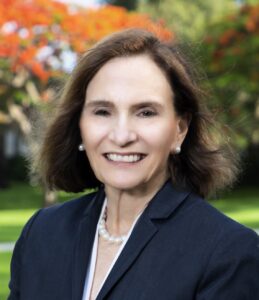Writer: Max Crampton-Thomas
 2 min read August 2021 — In today’s labor environment, people need to show evidence of competency. As a result, said Rebecca MacMillan Fox, dean of the Division of Continuing and International Education at the University of Miami, a person with a certificate in cybersecurity can have a better chance of a high-paying job .
2 min read August 2021 — In today’s labor environment, people need to show evidence of competency. As a result, said Rebecca MacMillan Fox, dean of the Division of Continuing and International Education at the University of Miami, a person with a certificate in cybersecurity can have a better chance of a high-paying job .
What strategies did you use to successfully manage last year’s challenges?
The first factor that was in our favor was that we had already created a hub for online activities at the University, so we were well-positioned to not only handle our programs in this new environment for online activity. We also were able to step in and become an active partner and driver in moving the University itself fully online, especially in the academic area and for undergraduates. It was our instructional designers, our experts in pedagogy, who developed the online teaching and training for over 3,000 faculty members. We were able to transition very effectively and successfully. It was amazing to see the speed at which our University body became engaged with the process and were willing to accept it. We were able to provide an environment that disrupted the isolation. We were able to give people a sense of belonging to a community, an online community. For instance, a 94-year-old member of our Osher Lifelong Learning Institute (OLLI at UM) was taking Arabic online. That’s one indication of the range of communities that we can impact if we manage to create a product that works for diverse populations. What it has done is increase our sense of the possibilities we have to reach people with our programs.
What is driving the concept of lifelong learning and how are educational institutions responding?
There are three reasons why lifelong learning is critically important. One is to help mature people remain intellectually engaged in their later years. The second is engaging people who may have retired but still provide incredible value to the community as experts in their fields. The third reason is as the cost of private education is rising to a level that is not sustainable, we must offer a commitment to our students from the day they enter and throughout their lives. A lot of undergraduate institutions are understanding that their value is to their students but it’s also to the communities around them.
How has your division’s cybersecurity program developed?
Our cybersecurity program is very important. We’ve partnered with HackerU. There is something special about this program. The rate of employment after the cybersecurity certificate is extraordinarily effective. It’s also a program in constant change. Every time there’s a major data breach from anywhere across the globe, the program must evolve, and the program is designed for that.
What are some of the most pressing needs for higher education institutions in the post-pandemic world?
As academic institutions, we must be more responsive to outside pressures and influences than we– pre-pandemic–have thought we had to be.
What is very clear now, and COVID has reinforced this, is that we are interdependent with our communities and that we have to be aware of that as we move forward. That also means to be more connected to the workforce and to offer the kinds of programs that develop the technical skills needed in our current labor markets.
COVID–19 brought to our attention that we’re going to have to be listening to one another and collaborating to make our communities more viable.
What is the comparative advantage of noncredit professional certifications to more traditional programs?
They are both important. There’s still value in degrees from accredited institutions, yet the growing employment opportunities across the globe require evidence of competency. A graduate from our certificate program in cybersecurity has a much higher chance of being employed immediately in a high-paying job than somebody with a computer science degree or a business degree because that person has hands-on skill-based training.
What is the near-term outlook for higher education institutions in Miami-Dade?
We will be the most successful if we find effective ways to collaborate to develop a well-educated workforce, including support for students from underserved communities. We must be flexible and we must be nimble. We don’t know exactly all that’s going to be asked of us as we look at a post-COVID world and respond to changing Miami demographics. We don’t know exactly what that’s going to look like but if we are going to be attractive to these new industries, we’re going to have to find ways to start developing the programs that are going to be able to help sustain them and to make this an attractive place for them.
For more information, visit: https://www.dcie.miami.edu/
